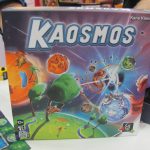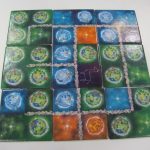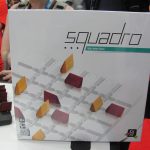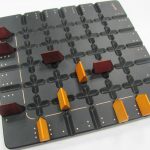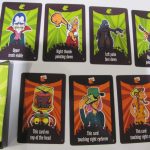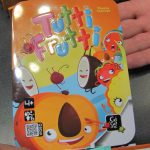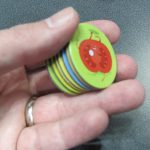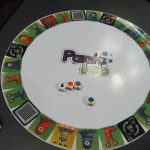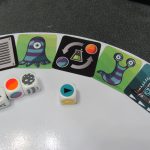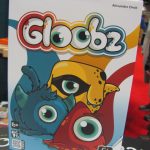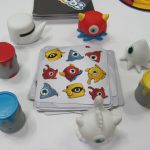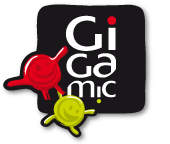 French book publisher Hachette Livre today announced that it has entered in to exclusive negotiations for the purchase of Gigamic from founders Jean-Christophe Gires and Stéphane Gires. Gigamic, also based in France, publishes a variety of strategy and family games, with its best-known titles probably being Quarto and Quoridor.
French book publisher Hachette Livre today announced that it has entered in to exclusive negotiations for the purchase of Gigamic from founders Jean-Christophe Gires and Stéphane Gires. Gigamic, also based in France, publishes a variety of strategy and family games, with its best-known titles probably being Quarto and Quoridor.
For Hachette Livre, which already publishes party games (quiz games, etc.), and which added mobile games to its portfolio in 2016, this investment is part of a strategic decision to explore the leisure activity market that sits alongside publishing, in particular all the segments of the consumer gaming market.
Stéphane Gires will continue to manage Gigamic after the transaction closes.
According to the Hachette Livre announcement, Gigamic’s annual sales exceed €15 million.
- Comments Off on Hachette Livre to Acquire Gigamic
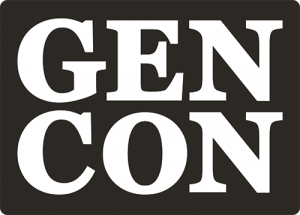 What I really want is the giant-sized Pylos but Gigamic’s new games look fun too.
What I really want is the giant-sized Pylos but Gigamic’s new games look fun too.
Kaosmos ($30, due at retail this fall) is a space-themed reimplementation of Mad City (with was published by Mayfair). Not to be confused with Chaosmos from Mirror Box Games, this title is a real-time tile-laying game, where players assemble individual galaxies of nine planet tiles and score points based on contiguous zones of same-colored planets. Additional points are awarded for the length of asteroid paths the players manage to keep uninterrupted in each of their galaxies.
Squadro ($35, fall) is a simple-looking abstract where players race to get their four pieces back and forth across the board. The twist is that if one player’s piece blocks the path of another’s, the so-called blocked piece jumps ahead and the blocking piece is sent back to the start.
- Comments Off on Gen Con 2018—Gigamic
 Gigamic’s next upcoming products are planned for September release.
Gigamic’s next upcoming products are planned for September release.
Yogi ($12) is an action card game that gives you a Twister-like experience while sitting around the table. On each player’s turn, they draw a new action card, adding it to the set of rules they must follow from all their previous cards. By the third round, for example, a player might have to hold a card on their head while keeping a thumbs-up pose and drawing new cards with only their elbows.
Hellapagos ($20) is a semi-cooperative game about being stranded on a desert island. The goal is to collect resources to build enough rafts for everyone. But because there are never enough resources, the players together must decide who starves and who gets left behind.
- Comments Off on ASTRA 2017—Gigamic
 A Gigamic presence at Gen Con was part of the French company’s effort to expand its presence in the U.S. market. Perhaps best known for abstract titles like Quoridor, the company also focuses on light family games, three of which it was highlighting at its first-time booth. All are available now.
A Gigamic presence at Gen Con was part of the French company’s effort to expand its presence in the U.S. market. Perhaps best known for abstract titles like Quoridor, the company also focuses on light family games, three of which it was highlighting at its first-time booth. All are available now.
Tutti Frutti ($12) is a fast-play matching game played with double-sided tokens. Each player holds a stack of tokens in hand and tries as fast as possible to match tokens on either end side-to-side with the same pictures. When all the tokens are claimed, whoever has the most is the winner.
Also a fast-play game, Panic Lab ($12) is about tracking down escaped amoebas. Cards representing laboratory features and unique amoebas—each with a distinct combination of characteristics—are placed on the table in a circle [the accompanying photo, instead of cards, shows a play mat used for demo purposes]. Then the dice are rolled and players try to be the first to point to the correct amoeba as represented by the dice. The extra-tricky part is that to figure out the correct amoeba, they have to follow a path around the circle, which as it gets to certain of those laboratory cards will modify the features they’re looking for or the direction in which they’re supposed to look.
Gloobz ($20) has players trying to be the first to grab the toy that represents either the color or shape shown the greatest or least number of times on a card. Which, greatest or least, is just whichever the players choose before flipping over the card.
- Comments Off on Gen Con 2016—Gigamic
Trending
- Massdrop.com
- Oh the Irony—Illuminati Card Game Continues to Inspire Conspiracy Theorists
- Home
- Footprints, an Educational Ecology Game
- USPS Adds Board Game Flat Rate Box
- Baila, the Estonian Drinking Card Game
- Crystal Caste Wins Dice Patent Suit Against Hasbro
- Mirror Game, Red and Blue
- Are Board Games Dangerous?
- The Truth About Dominoes On Sunday in Alabama
Archives
Most Popular Articles
- Oh the Irony—Illuminati Card Game Continues to Inspire Conspiracy Theorists
- The 20 Most Valuable Vintage Board Games
- The Truth About Dominoes On Sunday in Alabama
- Sequence Game, and Variants
- USPS Adds Board Game Flat Rate Box
- Baila, the Estonian Drinking Card Game
- The 13 Most Popular Dice Games
- Are Board Games Dangerous?
- Guess Who? The Naked Version
- What Happened to the Jewel Royale Chess Set?
Recent Posts
- Toy Fair 2019—Breaking Games
- Talisman Kingdom Hearts Edition
- Toy Fair 2019—Winning Moves
- Toy Fair 2019—Games Workshop
- Toy Fair 2019—Star Wars Lightsaber Academy
- Toy Fair 2019—Stranger Things Games
- Toy Fair 2019—HABA
- Licensing Roundup
- Game Bandit
- 2018 A Difficult Year For Hasbro But Not For D&D Or MtG
Recent Comments
- on Toy Fair 2019—Winning Moves
- on Game Bandit
- on Second Look—Dungeons & Dragons Waterdeep Dragon Heist
- on Crowdfunding Highlights
- on Beyblade SlingShock
- on Game Bandit
- on Game Bandit
- on Watch This Game!, the Board Game Review Board Game
- on Second Look—Vampire: The Masquerade 5th Edition
- on Palladium Books Loses Robotech IP License, Cancels Five-Year-Overdue Robotech RPG Tactics Kickstarter

